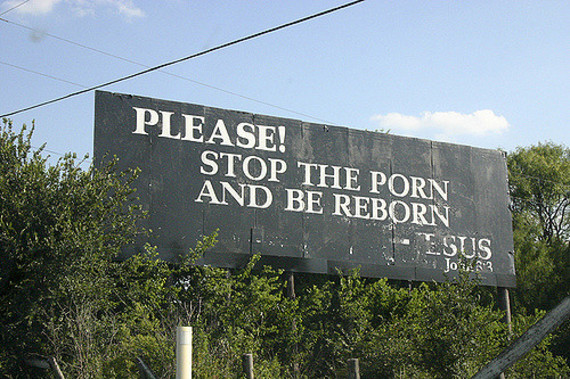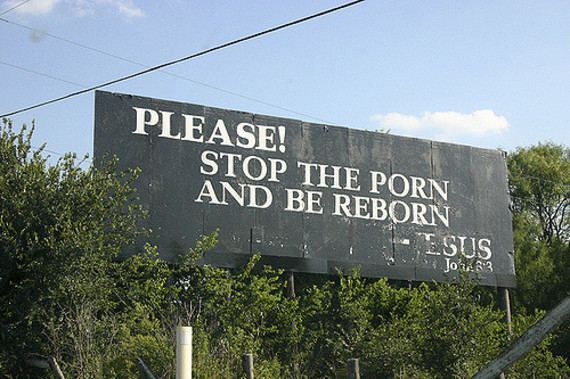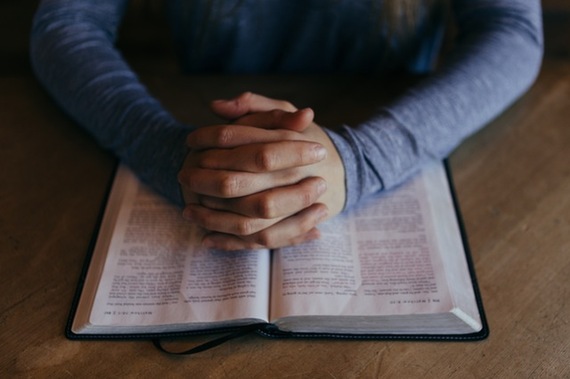This post has already been read 5603 times!
There was no sense of shock, just a mild dose of nostalgia when Playboy magazine announced it would stop featuring nude women in its magazine.
“That battle has been fought and won,” Playboy CEO Scott Flanders told the New York Times in what amounted to a concession speech to the online pornography industry.
“You’re now one click away from every sex act imaginable for free.”
But as the secular culture marches on in its acceptance of pornography, one group of Americans is not finding it as easy to adapt, research indicates.
The widespread access to graphic sexual images may be particularly damaging to religious individuals. Many find themselves caught between the teachings of their faith and the same basic desires that have turned online porn into a multibillion-dollar business.
Religious individuals who reported going online for porn spent just as much time viewing pornography as less religious individuals, according to one set of studies.
But there is a major difference: Religious users who also expressed moral disapproval of pornography were much more likely to view their habit as an addiction.
The finding, researchers indicated, may be more telling of the religious respondents’ spiritual struggles than an accurate assessment of their behavior.
Another study revealed that the more time religious parents spent watching porn, the less time they were likely to spend talking or reading about religion, God and spirituality with their children.
“Findings suggest that increased pornography consumption itself might threaten the transmission of religious heritage from parents (and particularly fathers) to children,” researcher Samuel Perry of the University of Oklahoma reported in the journal Sociology of Religion.
Breaking bad
Several studies suggest that the importance of religion in a person’s life and religious practices such as attending services generally discourage pornography use.
But an emerging body of research is finding a flip side for religious individuals who believe pornography is morally wrong, but still seek it out.
In some cases, what could be a simple case of adolescent exploration or a natural impulse to taste readily available forbidden fruit can lead to more serious mental health issues.
The added burdens of shame and guilt associated with pornography use also lead some to withdraw from the religious communities they would normally depend on for social support. They may also distance themselves from those closest to them.
“Its use could be a source of increasing tension, shame, and cognitive dissonance among religious spouses and parents, influencing them to disengage from religious interaction due to shame and scrupulousness, or perhaps just be too preoccupied with their pornography habit to interact with others,” The University of Oklahoma’s Perry reported.
Unlike addictions to food, or even alcohol, drugs or gambling, porn may seem particularly difficult to admit or talk about in religious communities that place greater emphasis on sexual sins, researchers state.
Consider these findings:
• One study analyzing data from 20,000 General Social Survey (GSS) respondents found adults who had watched an X-rated movie in the last year “were more likely to be divorced, more likely to have had an extramarital affair, and less likely to report being happy with their marriage or happy overall.” Frequent church attenders were among the more likely to suffer the negative effects. “Essentially, belonging to a group that discourages pornography use puts a higher social cost on pornography,” researchers from the University of Notre Dame and Brigham Young University reported.
• A separate study analyzing GSS data found that men who were frequent church attenders and who had not seen an X-rated movie in the last year reported the highest level of happiness. Who reported the lowest level of happiness? Men who watched X-rated movies and did not attend church regularly.
• Three other studies found that while fewer religious individuals reported checking out porn online, those who did were more likely to consider it an addiction. This despite the fact the time they spent online was about equal to other pornography users. One study was with undergraduates at a public and private university, a second with students at a Christian-affiliated university and a third with a web-based adult sample.
Given their own moral misgivings about their actions, “it may be that religious individuals have a tendency to interpret a potentially non-pathological behavior, such as Internet pornography use, as pathological,” researchers noted.
What can be done?
For practical purposes, the studies should help make clergy and secular mental health counselors more aware of the spiritual issues that may be at the heart of the problem associated with online pornography use for some religious individuals.
Religious communities also may want to consider ways to be more supportive and welcoming for members struggling with online pornography use.
Sermons addressing the issue, support groups and educational events may help reduce the isolation and sense of shame that prevent some people from seeking help.
What is clear is that the issue – and the temptations – are not going away.
Online pornography has never been more pervasive.
Its use has largely become a socially acceptable activity in popular culture. Today, TV sitcom characters admit to viewing porn in the same way men a generation or two ago sheepishly admitted to sneaking out of work or the house to go golfing.
But research is revealing that the consequences of pornography are often in the eye of the beholder, and they can be a heavy burden for some of the faithful.
In cases like these, religious groups and individuals may even want to take a page out of the playbook of Pope Francis. In Amoris Laetitia, his apostolic exhortation on family life released Friday, the pope asked Catholics to follow the “preaching and attitudes of Jesus, who set forth a demanding ideal yet never failed to show compassion and closeness to the frailty of individuals.”
The church, Francis said, “must be particularly concerned to offer understanding, comfort and acceptance, rather than imposing straightaway a set of rules that only lead people to feel judged and abandoned.”
David Briggs writes the Ahead of the Trend column for the Association of Religion Data Archives.
Image by eartotherailfotos via flickr [CC BY-NC-ND 2.0]
Image by Patrick Fore via Pexels [CCO]
— This feed and its contents are the property of The Huffington Post, and use is subject to our terms. It may be used for personal consumption, but may not be distributed on a website.
Comments






